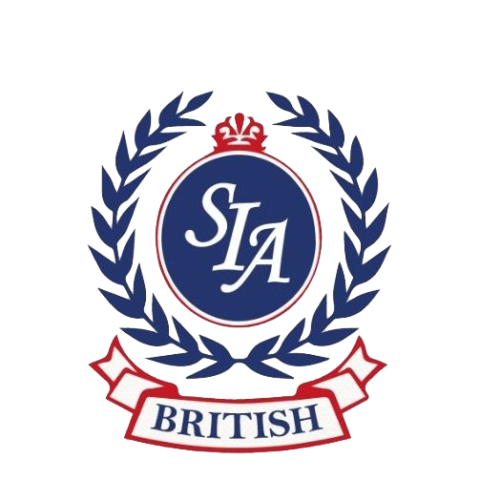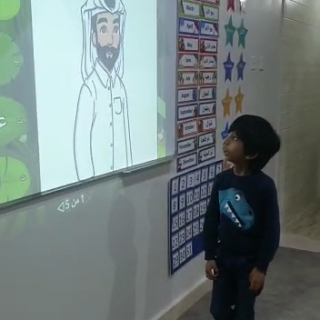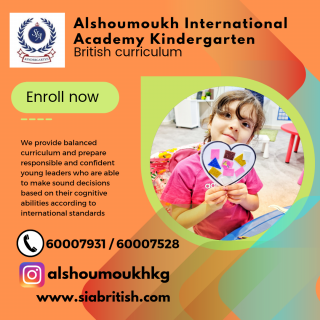EARLY YEARS FOUNDATION STAGE
National Curriculum of England
Early Years Foundation Stage Curriculum
Al Shoumoukh International Academy follows the Early Years Foundation Stage Curriculum (EYFS) which provides a structured educational plan that summarizes and describes children’s attainment that should be reached before their first year of primary school.
The Early Years Foundation stage curriculum aims to provide children with skills and techniques needed to develop holistically. The holistic development of children is supported through the structure shown in the EYFS curriculum, which is based on the following elements.
- The Seven Learning areas of development
- The Early Learning Goals and Descriptors
- Effective Learning Characteristics
- Planned Adult Led Activities
- Planned Child initiated Activities
- Observations and Assessments
- Daily Routine
The Seven Learning Areas of Development
The learning areas of development are a reference point of information for the planning and delivery of both ‘Adult led and Child Initiated Activities’ and ‘indicators’ for ‘Observation and Assessments.
Prime Areas of Learning
Communication and language
This learning area of development involves providing children a variety of opportunities to demonstrate their listening understanding and speaking skills in a range of situations. Communication and Language aims to encourage children to participate in conversations, ask appropriate questions and answer appropriately. This will help them develop their confidence and skills in expressing themselves.
Physical Development
This learning area of development involves providing stimulating opportunities for children to learn the functions of their gross motor skills and fine motor skills as well as continuous progression hand and eye coordination. Physical Development encourages children to develop their coordination, control, and movement through engaging in a variety of physical activities such as running, climbing, aiming, throwing, obstacle races and similar activities. Children will develop their fine motor skills by cutting, drawing, painting, grasping, twisting and such activities. This learning area of development also encourages the importance of living healthily with regards to healthy foods, healthy physical activities and personal care that promotes good health.
Personal, Social and Emotional Development
This learning area involves helping children to discover their skills and techniques in order for them to raise in self confidence. The discovery of their skill set will help them to develop a positive sense about themselves and others, which will lead to healthy social skills.
Specific Areas of Learning
Literacy Development
This learning area of development involves encouraging children to link sounds to letters by doing a range of activities that involve the identification and hearing of sounds, which in turn supports them with the blending of words for reading and spelling. Jolly Phonics is the main approach used to support this area of development.
Mathematics
This learning area of development involves providing children with opportunities to develop their skills and techniques in counting numbers, ordering numbers, learning the value of numbers, calculating simple addition and subtraction problems. Mathematical Development encourages children to use their knowledge of what they have learnt to solve word problems. Children will describe shapes and relate them to everyday objects. They will learn how to negotiate space and understand the concept of measure and begin to apply it practically through a range of interactive activities.
Understanding the World
This learning area of development involves guiding children to make sense of their world and their community. Understanding the world encourages children to look at the similarities and differences within the in- built environment of the world, the natural part of the world and the technology used. Children should be engaged in activities that encourage opportunities to explore, observe and find out about people, places, technology and the environment.
Expressive Arts and Design
This learning area of development involves supporting children to explore sharing their thoughts, ideas and feelings through a variety of activities in art, role play, design and technology. Children need to be exposed with a wide range of materials and be feel at ease to take risks by testing their ideas in a safe and stimulating environment.



